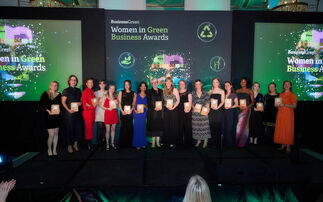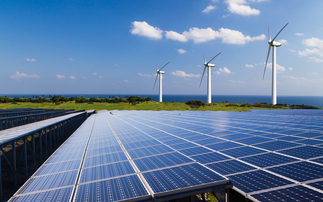Industry Voice: Barratt PLC's Gemma Webb explains why diversity in the construction sector is key to its future prosperity and green transition
Of the 2.7 million people working in the construction sector, fewer than 15 per cent are women. That's not a statistic from the 1950s, but a reflection of where we are today. Traditionally, construction...
To continue reading this article...
Join BusinessGreen
In just a few clicks you can start your free BusinessGreen Lite membership for 12 months, providing you access to:
- Three complimentary articles per month covering the latest real-time news, analysis, and opinion from Europe’s leading source of information on the Green economy and business
- Receive important and breaking news stories via our daily news alert
- Our weekly newsletter with the best of the week’s green business news and analysis







